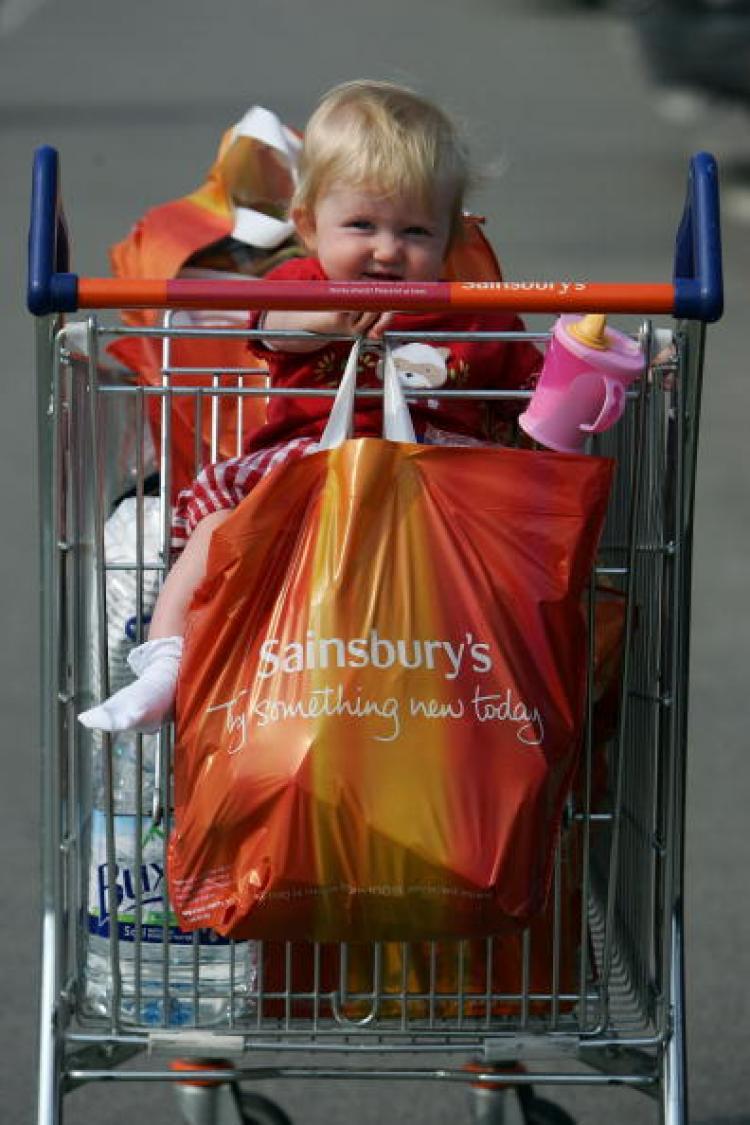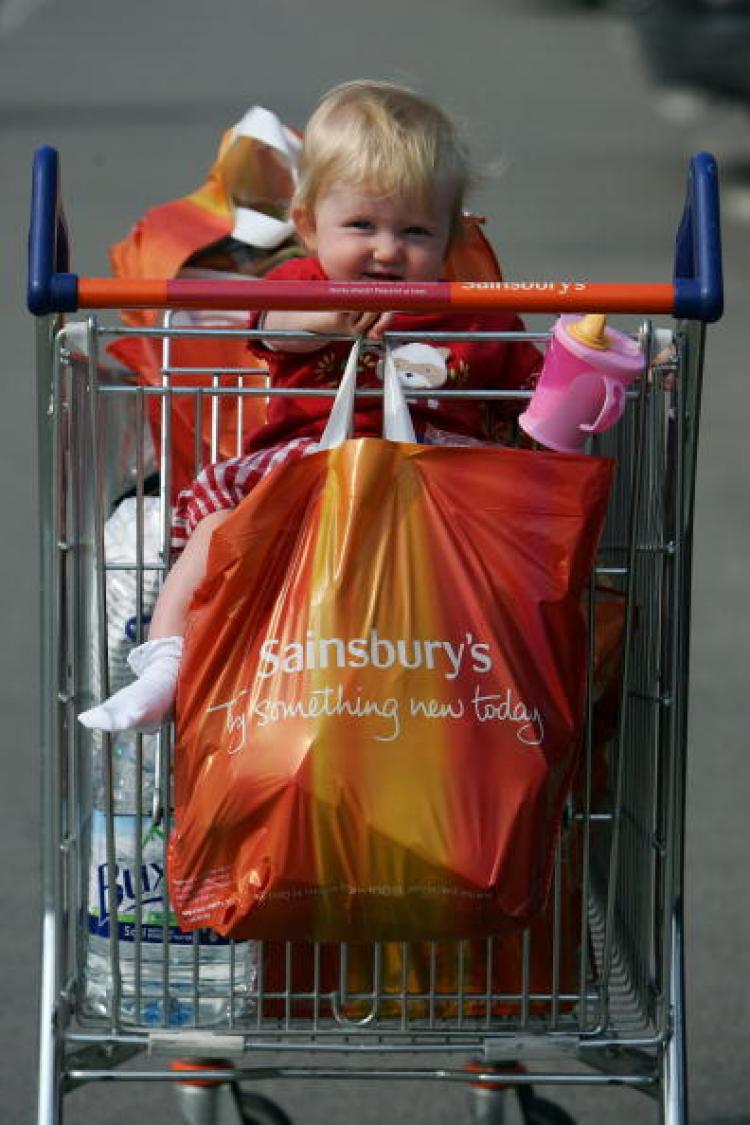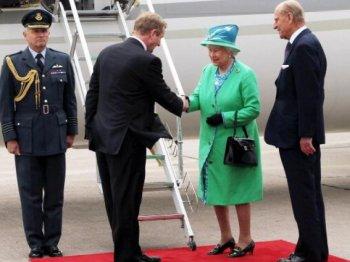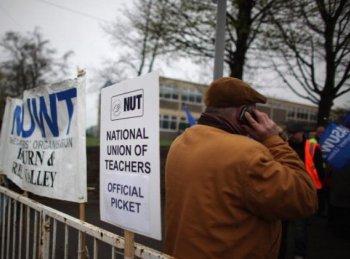Record Supermarket Food Price Discounts Halt Inflation
UK Consumer Prices Index (CPI) annual rate of inflation has fallen to 4 per cent, down from 4.4 per cent in February. Fruit prices down 4.7 per cent, bread and cereals by a record 2.6 per cent compared with same time last year.

A one year old girl sits in a supermarket trolley. Heavily discounted food prices, used to entice the recession- hit public are thought to have seen off a further rise in inflation and a possible future rise in interest rates. Christopher Furlong/Getty Images
|Updated:




